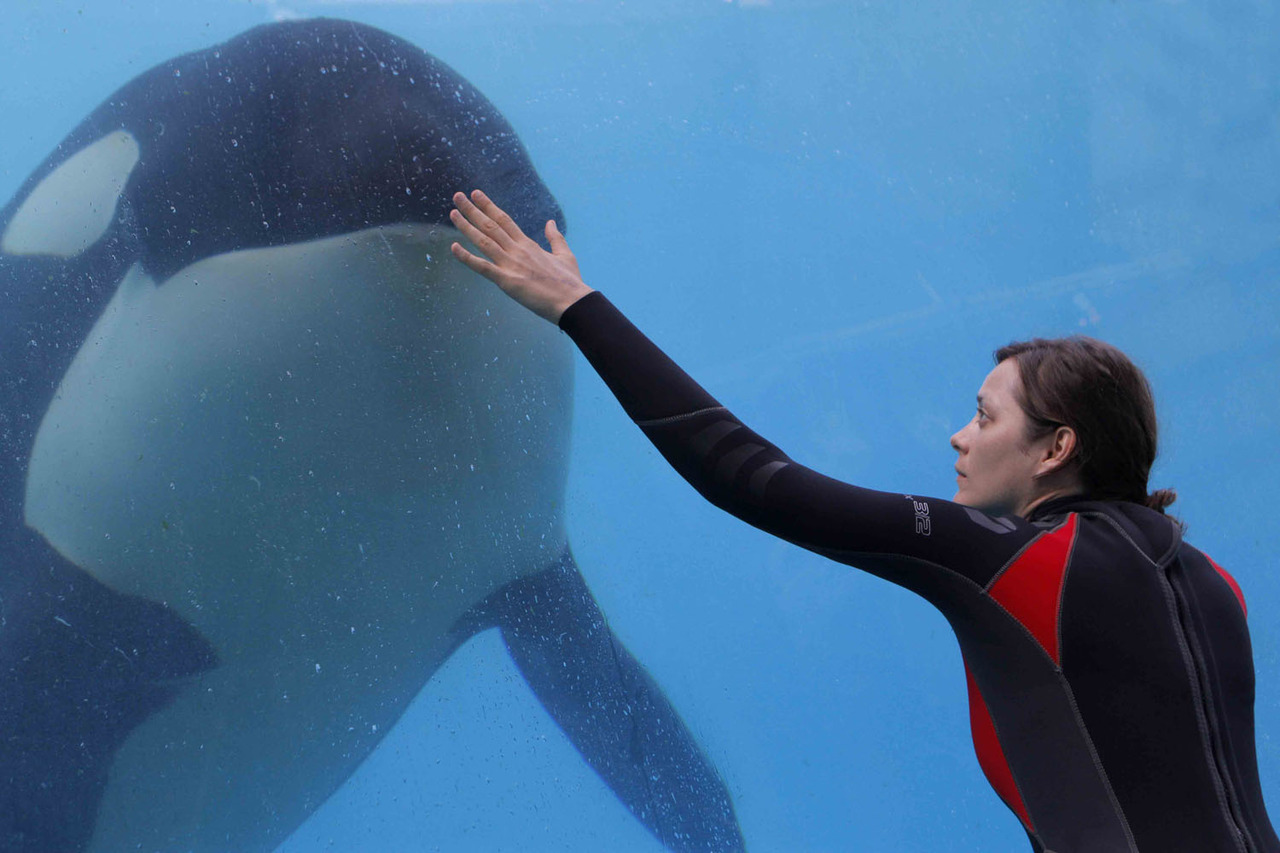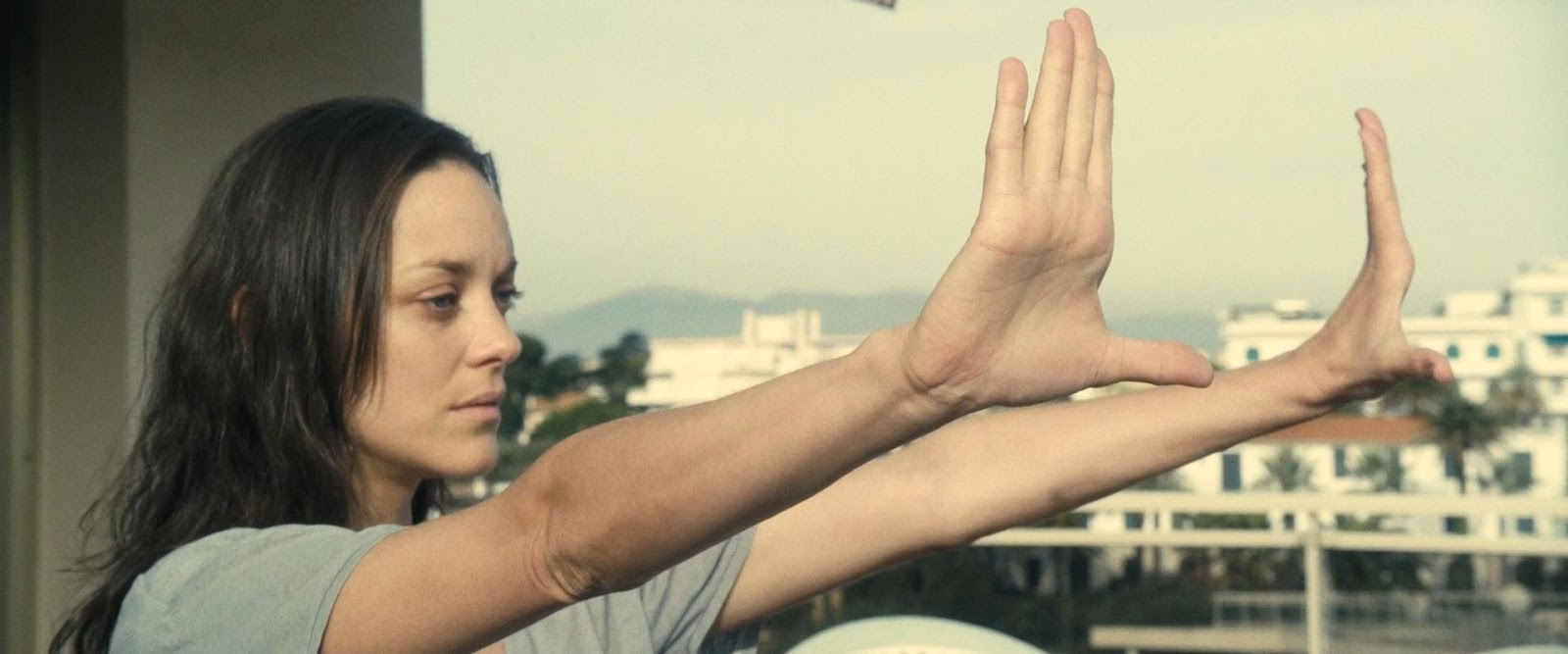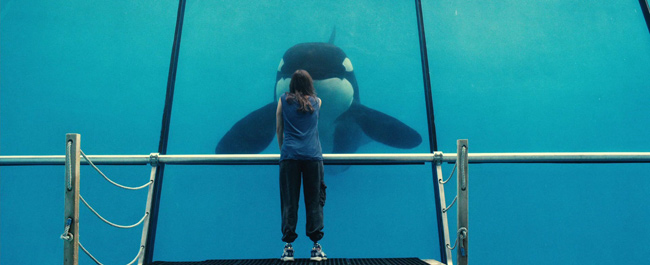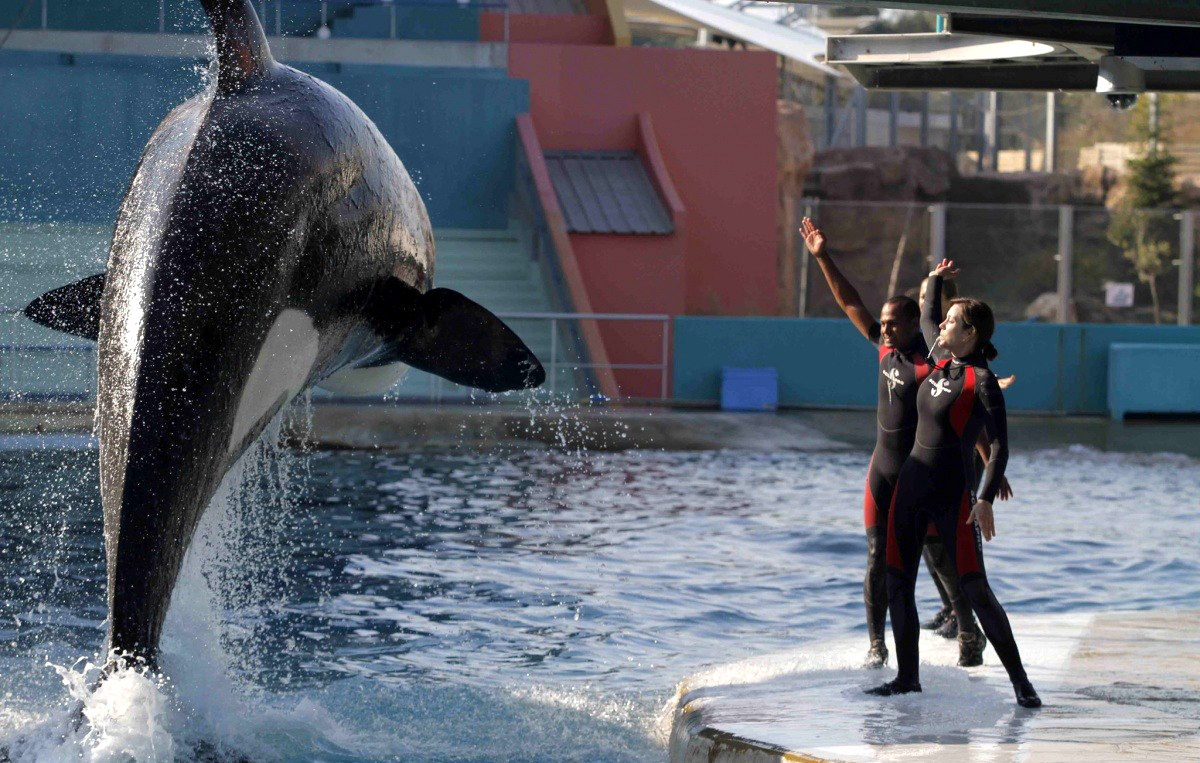|
French
director Jacques Audiard (A Prophet) counters a
disjointed script
with fascinating conceptual details, beautiful images and intense
moments of
raw acting. Rust and Bone is equally
mesmerising as it is clumsy, but that it is ever touching is a result
of some
skillful albeit undisciplined filmmaking.
The
film's story belongs to Ali
(Matthias Schoenaerts), a hardened man looking for a place to stay with
his
young son Sam (Armand Verdure). With little money, they house together
in the
home of Ali's sister Anna (Corinne Masiero). Finding work as a bouncer
at a
nightclub, Ali breaks up a fight and escorts Stephanie (Marion
Cotillard) home. Stephanie
is an orca whale trainer at
Marineworld but after a freak accident at a show she is hospitalised
and wakes
up to find that both her legs have been amputated.

Depressed
and broken, she calls Ali
for assistance and comes to realise that with the rest of her body
intact she
is still
capable of living. Meanwhile, to make money Ali participates in sweaty,
unofficial kickboxing matches.
As with
Audiard's previous film A Prophet, a gritty prison
crime drama,
the director contrasts agonising moments of pain and
violence with
images that are brimming with meaning and beauty. The tone
is consistent but there are
bumps in the script, written by the director and Thomas Bidegain. The
book
they've adapted, "Rust and Bone", is by Canadian author Craig
Davidson, and is comprised of a number of short stories.

The idea
from these stories have
been borrowed and developed for a whole new story and the two central
characters were also written anew for the screen. Some of the theories
of
physicality are smart, but the pastiche format of the book is too
evident at
times.
The story
structure feels episodic,
which leaves powerful images, like Stephanie's reunion with the whale,
as singular,
isolated moments. The
trajectory of the narrative is
often stifled as we wait for new plot points to gain punctuality. An
underdeveloped subplot surrounding Ali's security employment for
example hinges
on a sizeable coincidence to drive the story into its final
act.
The film
is better as a critique of
the way people fail to appreciate their own bodies, until
they reach a catastrophic event that makes them rethink their
physicality.

The tight
framing of the characters from
the waist up removes any consciousness of the rest of their bodies.
This
reflects the lack of self-worth in their lives as they are only
concerned by
primal instincts of survival, like relying on other people to mentally
or
physically carry them (a pertinent image), or scavenging for food in
this
downtrodden economic period.
The
disunity between belief and the
primal thought is shown in two juxtaposing moments. Stephanie is filmed
through
a long lens, standing alone as the mould for her prosthetic limbs sets.
The
shot seems isolating but the visibility of her own being reminds her
that is
she still alive and capable.
The film
then cuts to shot Ali
sitting down at a computer, with only half his body visible, watching
brawls on
the Internet. It shows the immaturity of his self-preservation in using
his
body for money and what he calls "fun". In this instance, the
combination
of theme and content is startlingly articulate.

Audiard
is less confident with
romantic sentimentalism. Both characters begin to inspire each other's
belief
in their own physical capabilities but it's an uneven theme. Ali
convinces
Stephanie to sleep with him to see if her body is still functional. We
know
that he is promiscuous so is he just using her? The question lingers.
Less
convincing is when Ali claws
back into the match when he sees Stephanie walking towards the fighting
pitch
or when she is hired to become a money handler for the fights, despite
seeing
the brutality and juvenility. It softens the opportunity for more
explosive
conflict between the leads.
The
actors, as naturalistic
as they are, are a little reminiscent of the film. There are flashes of
brilliance, including scenes of unprecedented emotional strain. But
then there
are stretches where Cotillard's reserved performance makes you long for
more
perpetuated tension and drama. It's an affecting and sometimes
beautiful film
but you will have to wait for its best moments.
|